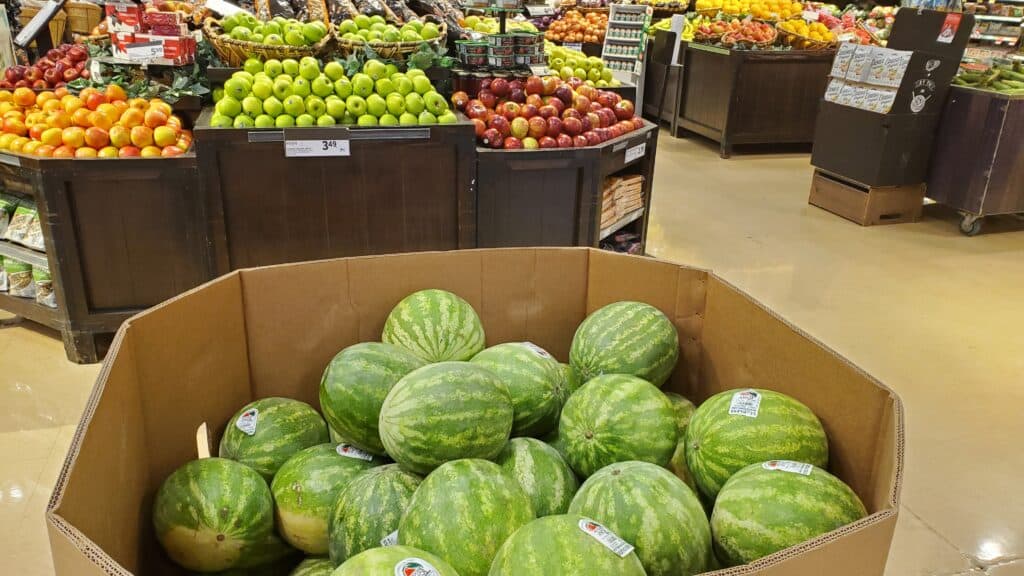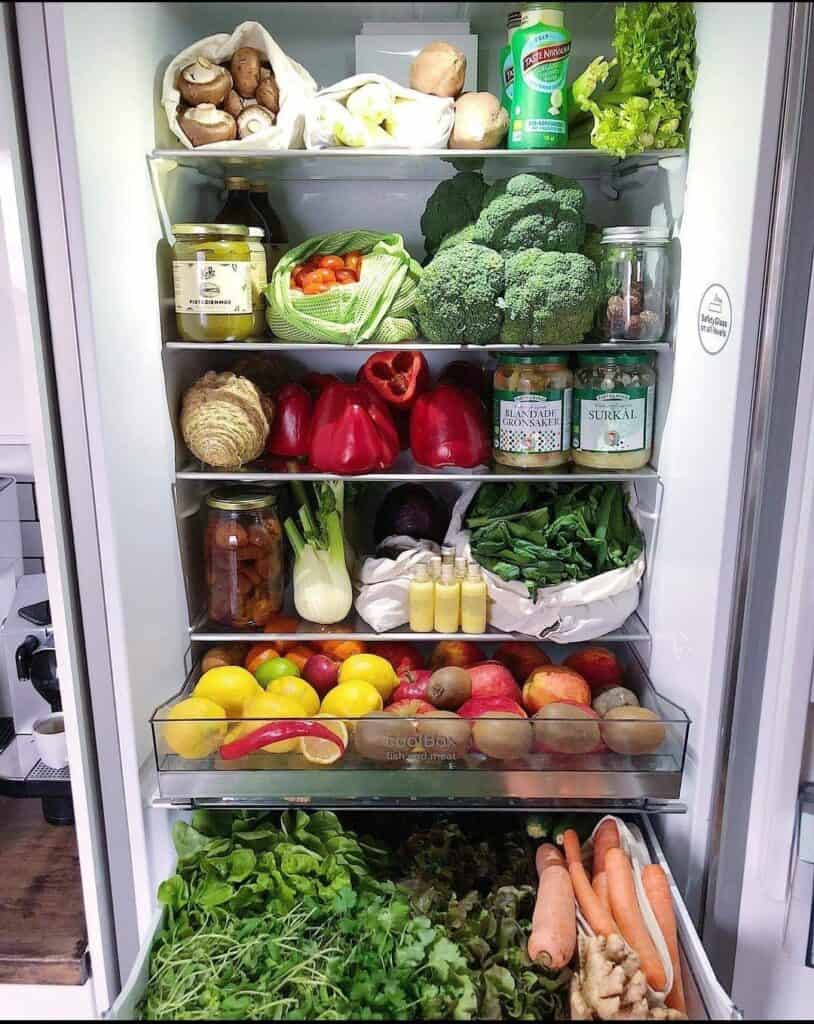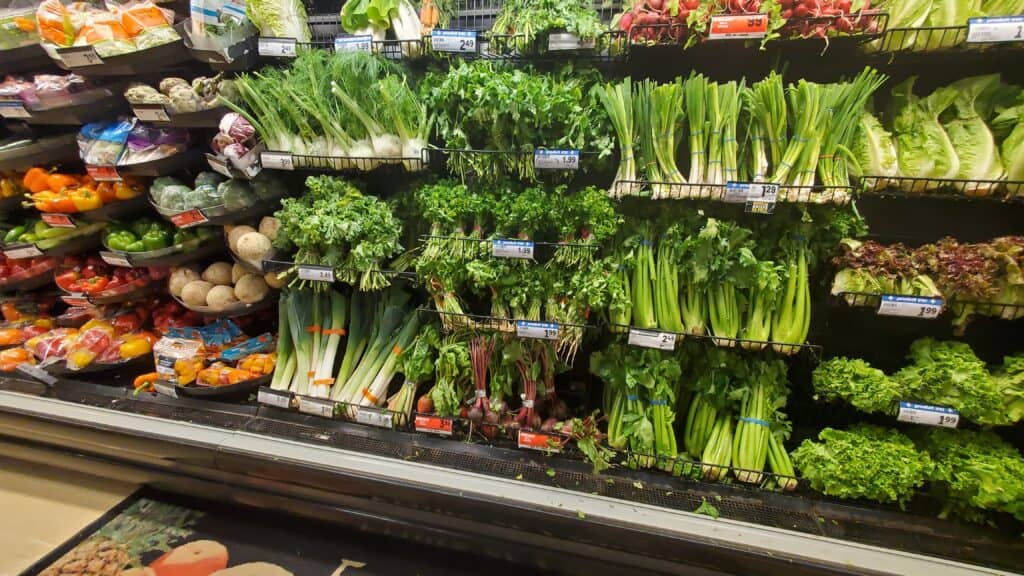How often should you go grocery shopping in 2023?
You Might Also Like:
- 13 ways our shopping habits statistics changed in 2023
- How Often Do You Go Shopping for Clothes?
- Grocery Shopping Without a Car

Today I’m going to show you exactly how often should you go grocery shopping.
In fact, these tips helped me discover exactly how frequently I do my shopping to save money and time.
Here’s what we’ll cover:
- How to maximize your shopping outings
- Factors that can affect how often you do grocery shopping
- Suggested shopping frequency
- Strategies to save when grocery shopping
- And much more.
Whether you’re a busy family with kids, a student on a budget, or anyone in between, you’ll love this guide.
Let’s get started.

How often is normal to go to the grocery store?
Factors to consider when deciding how often should you go grocery shopping
- Family size and composition
- Dietary restrictions or preferences
- Storage space
- Budget and financial constraints
- Proximity to grocery stores
- Availability of time
When it comes to figuring out how often you should go grocery shopping, there are a number of factors that can come into play.
Here are some key considerations to keep in mind:
1. Family size and composition
The size and composition of your family (e.g., number of adults vs. children) can have a significant impact on how frequently you need to go grocery shopping.
For smaller households or individuals, going to the grocery store once or twice a week may be sufficient. This allows for fresh produce and perishable items to be replenished regularly without the risk of food waste.
On the other hand, larger families often need to go to the grocery store more frequently to accommodate their needs. It may be practical for larger families to make grocery trips two to three times a week to ensure an ample supply of food.
2. Dietary restrictions or preferences
If any members of your household have dietary restrictions or specific food preferences, you may need to shop more frequently.
For example, if you follow a vegan diet, you’ll want to make sure you have plenty of plant-based protein sources on hand, such as beans and tofu.
3. Storage space to determine grocery shopping frequency

How much room you have in your freezer and pantry for storage can also affect how frequently you need to go shopping.
Stocking up on items that can last longer (like frozen vegetables or canned goods) may be possible if you have a lot of storage space.
Those families with limited storage may need to shop more frequently for fresh produce.
4. Budget and financial constraints
The frequency of your grocery runs may also depend on your spending plan and financial situation.
To avoid going overboard with your spending when money is tight, you might need to make fewer trips to the store.

5. Proximity to grocery stores
If a grocery store is nearby, there is a possibility to visit more frequently to pick up small items or last-minute necessities.
However, if you live further away, you might need to plan your trips more carefully to make the most of your time and gas money.
6. Availability of time
Finally, how often you need to go grocery shopping depends on your own availability and schedule.
You might enjoy shopping more frequently if you have a lot of free time.
However, people with busy schedules might need to make more careful plans for their trips to fit everything in.
By taking into account each of these elements highlighted, you can begin to develop a better understanding of how frequently you should shop for groceries for your particular household.
How do you realize when it’s time to buy?
Key factors in maintaining an efficient grocery shopping routine is recognizing the signs that indicate it’s time for a grocery run.
One of the most obvious signs that it’s time to go grocery shopping is when your pantry and refrigerator are running low on essential items.
Another sign that it’s time to go grocery shopping is when you find yourself constantly improvising meals with what’s left in your pantry.
If you’re struggling to put together balanced and nutritious meals because you’re missing key ingredients, it’s a good indication that you need to restock your supplies.
Lastly, being mindful of your household’s consumption patterns can also help you determine when it’s time to buy. If you find that your family is going through certain items quickly, such as bread or snacks, it’s a good indication that you need to purchase them more frequently.
Should I grocery shop every week?
Exploring the pros and cons of shopping on a weekly basis can help you determine the optimal grocery shopping frequency for your household.
While shopping every week has its advantages, it’s important to consider alternatives and their benefits as well.
One of the main advantages of shopping weekly is that it allows for better meal planning and ensures that you have fresh ingredients on hand.
Another benefit of shopping weekly is that it helps you stay on top of your household’s needs.
Shopping weekly allows you to take advantage of any sales or promotions that may be available, helping you save even more money.
However, there are also alternatives to weekly shopping that may be more suitable for certain households.
One option is bi-weekly shopping, where you shop every two weeks instead of every week.
This can be beneficial for households with limited time or those who prefer to stock up on non-perishable items in bulk.
Another alternative is monthly shopping, where you do a big grocery haul once a month. This approach can be advantageous for individuals or families with busy schedules or those who have ample storage space.
How do people spend under $100 on groceries?
It may seem like a daunting task, but with some strategic planning and budgeting, it is definitely achievable.
Here are some tips and strategies for budget grocery shopping that can help you keep your grocery expenses low.
1. Make a grocery list
Before heading to the store, make a list of the items you need. Stick to this list and avoid impulse purchases. By having a clear plan, you can avoid buying unnecessary items and stay within your budget.
2. Plan your meals
Meal planning is a great way to save money on groceries. Take some time to plan your meals for the week and create a shopping list based on those meals. This way, you can buy only the ingredients you need and avoid buying items that might go to waste.
3. Shop sales and use coupons
Keep an eye out for sales and discounts in your local grocery store. Plan your meals around the items that are on sale to save money.
Additionally, use coupons to further reduce your grocery expenses. There are many websites and apps that offer digital coupons that you can easily access and use.
4. Buy in bulk
Buying in bulk can be a cost-effective way to save money on groceries. Look for items that have a long shelf life such as pasta and canned goods and buy them in larger quantities. This can help you save money in the long run and reduce the frequency of your grocery trips.
5. Shop at discount stores
Consider shopping at discount grocery stores. These stores often offer lower prices on a wide range of products. While the selection might be more limited compared to regular grocery stores, you can find great deals and save a significant amount of money.
6. Compare prices and brands
Don’t be afraid to compare prices and brands. Different stores may offer different prices for the same item, so it’s worth checking out multiple stores before making a purchase.
Consider trying store brands products. They are often cheaper and can be just as good as the more expensive brands.
This is my new secret!
7. Avoid convenience foods
Convenience foods, such as pre-packaged meals and snacks, tend to be more expensive. Instead, opt for fresh ingredients and cook meals from scratch. Not only will this save you money, but it will also be healthier and more satisfying.
8. Shop with a budget
Set a budget for your grocery shopping and stick to it. Knowing how much you can afford to spend can help you make smarter choices and avoid overspending. Keep track of your expenses and adjust your budget as needed.
There you have it. Now you know how often should you go grocery shopping.
Now I’d like to hear from you:
Which shopping frequency suit your situation?
Let me know by leaving a comment below right now.
Happy shopping!

